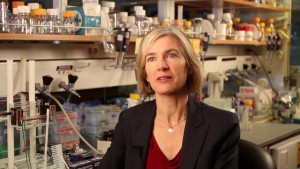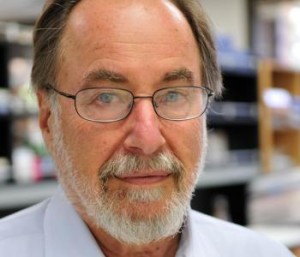Most pathologists know that CRISPR can permanently repair DNA to eliminate diseases that plague families, but also could be used for less ethical purposes, say experts
Gene editing is a rapidly developing field that is expected to create new diagnostic needs that can be filled by pathologists and by new medical laboratory tests. However, experts in bio-ethics are voicing concerns that gene editing for clinical purposes is moving forward without proper consideration of important ethical issues and are calling for a moratorium on use of gene editing for clinical purposes.
What is speeding the development of gene editing is use of the tool known as CRISPR/Cas9. It is a gene-editing tool that makes it possible to genetically modify DNA for therapeutic purposes. It provides medical scientists the ability to repair damaged genes that cause or predispose individuals to disease.
Gene-Editing Could Be Used to Rid Families of Hereditary Diseases
Researchers are optimistic that gene-editing might make it possible to rid families of scourges like cystic fibrosis and sickle cell anemia. Some scientists believe that gene-editing might offer protection against infection and diseases like Alzheimer’s. It could even slow or end aging.
But some scientists are wary of gene sequencing because they point out that it might also be used to create designer babies.
How CRISPR Works When Used for Editing Genes
CRISPR is an acronym for “clustered regularly interspaced short palindromic repeats.” Short palindromic repeats are found in the genomes of bacteria and other microorganisms. CRISPR was developed by research biologist Jennifer Doudna, Ph.D., who holds appointments at the University of California Berkeley, Howard Hughes Medical Institute, and Lawrence Berkley National Lab.

In an article for Technology Review, Jennifer Doudna, Ph.D. (above), Professor and HHMI Investigator at UC Berkeley and Howard Hughes Medical Institute, and co-discoverer of CRISPR, said “I don’t feel that those experiments are appropriate to do right now in human cells that could turn into a person.” (Picture copyright Foundation for the National Institutes of Health.)
CRISPR makes gene editing in many organisms and cells, such as human eggs, sperm or embryos, more efficient, accessible and simpler, noted a TechCrunch article.
This genomic editing system mimics how a bacteria’s immune system naturally sheds viruses. Scientists can use the technique to slice into the genome, then edit out and delete DNA that causes disease. This DNA can be replaced with DNA synthesized in a lab. Once damaged genes are replaced, they are no longer passed on to offspring, as reported in Dark Daily (January 26, 2015).
Top Biologists Call for Moratorium on CRISPR Use, Including Its Creator
In a Science magazine article, a group of leading biologists headed by Doudna called for a worldwide moratorium on CRISPR use until it can be safely assessed. They also said the moratorium would give scientists, ethicists, and the public time to fully understand the issues surrounding this breakthrough, which could be used to cure genetic diseases, but also to enhance babies’ features, noted a New York Times story.
“You could exert control over human heredity with this technique, and that is why we are raising the issue,” said David Baltimore, Ph.D., D.Sc.hc., D.Phil.h.c., President Emeritus and Robert Andrews Millikan Professor of Biology at the California Institute of Technology (Caltech) in the New York Times article. He is among the group of scientists who authored the Science paper.

“I personally think we are just not smart enough—and won’t be for a very long time—to feel comfortable about the consequences of changing heredity, even in a single individual,” stated David Baltimore, Ph.D., President Emeritus and Robert Andrews Millikan Professor of Biology at the California Institute of Technology, in the New York Times article. (Picture copyright Caltech.)
“It raises the most fundamental of issues about how we are going to view our humanity in the future and whether we are going to take the dramatic step of modifying our own germline and in a sense, take control of our genetic destiny, which raises enormous peril for humanity,” George Q. Daley, M.D., Ph.D., told the New York Times. He is Professor of Hematology/Oncology and Director of the Stem Cell Transplantation program at Boston Children’s Hospital, holds appointments at Harvard Medical School and the Howard Hughes Medical Institute, and is also part of the moratorium group.
Scientists Use CRISPR On Living Human Embryo
The moratorium group’s concerns are not unwarranted. In a May, 2015, Protein & Cell research article, researchers reported on the first-ever attempt to genetically modify a living human embryo—made possible by CRISPR.
The biologists calling for the CRISPR moratorium support its use in laboratory research, but most do not think it is ready for clinical practice. Use of experimental therapeutic techniques is highly regulated in the United States and Europe. American scientists, for example, will be required to secure Food and Drug Administration (FDA) clearance before CRISPR can be used to treat genetic diseases.
Precedent on Cloning People with Recombinant DNA Might Apply to CRISPR
Legally, a moratorium on CRISPR may be unenforceable—particularly abroad. However, there is a precedent in place that may deter its use until it can be deemed safe and effective, noted the New York Times.
In 1975, scientists attending the Asilomar Conference on Recombinant DNA agreed to refrain from using the recombinant DNA techniques to manipulate or clone genes until rules have been established.
“We asked at that time that nobody do certain experiments, and in fact nobody did, to my knowledge,” Baltimore told the New York Times. “So there is a moral authority you can assert from the U.S., and that is what we hope to do.”
Austrian Genetic Firm Already Using CRISPR to Clone Genes for Commercial Use
Horizon Genomics, however, is already using CRISPR technology to clone custom human “knockout genes,” which it sells to scientists. The Vienna, Austria-based company now has a library of more than 800 available CRISPR-modified HAP1 Knock-Out Cell Lines (haploid human cell line), which is growing by about 100 genes per month, as Dark Daily reported (January 21, 2015).
—Patricia Kirk
Related Information:
The Genome Engineering Revolution
Scientists Seek Ban on Method of Editing the Human Genome
CRISPR/Cas9-Mediated Gene Editing in Human Tripronuclear Zygotes
A Prudent Path Forward for Genomic Engineering and Germline Gene Modification
Recombinant DNA and Genetic Techniques


